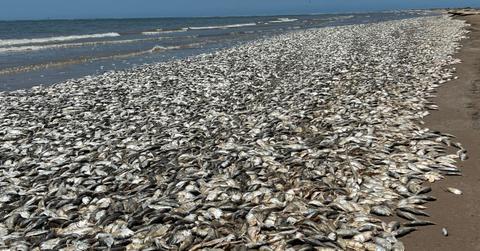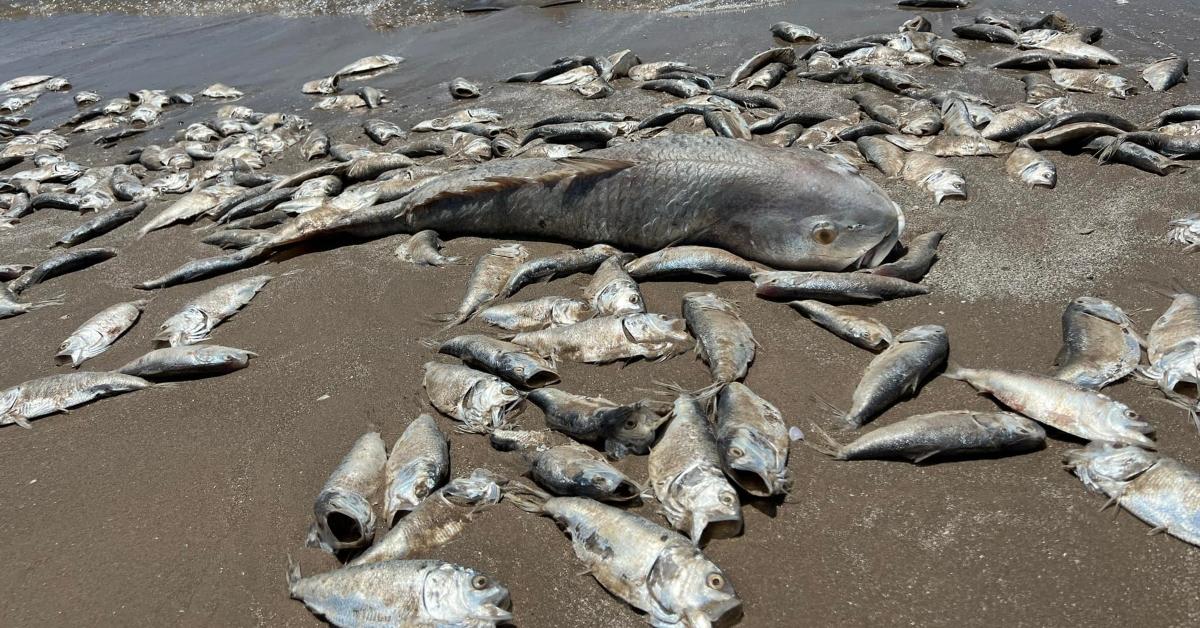Dead Fish on Texas Beaches: Is It a Sign of Climate Change?
Published June 13 2023, 1:51 p.m. ET
Thousands of dead fish who washed up on southeastern Texas beaches on June 10 and 11, 2023 could be another stark reminder of how climate change is impacting the Earth.
Keep reading for all the details.
What caused the dead fish on Texas beaches?
A “low dissolved oxygen event” in ocean waters off the coast is what killed the fish who are washing up on Texas beaches, say officials with the Texas Parks & Wildlife Kills and Spills Team. Most of the dead fish were Gulf menhaden, which usually travel in large schools. However, the carnage also included sharks, catfish, stingrays, and trout.
“Fish kills like this are common in the summer when temperatures increase. If there isn't enough oxygen in the water, fish can't ‘breathe,’” officials stated in a June 11 Facebook post for the Quintana Beach County Park.
Water samples taken from the Intracoastal Canal and near the Brazos River locks had almost no dissolved oxygen, Park officials stated on Facebook.
The combination of warm water, calm seas, and cloudy skies created the “perfect storm to deplete oxygen levels inshore,” said Quintana Beach County Park officials. Water temperatures warmer than 70 degrees Fahrenheit have less oxygen, and when a school of menhaden fish is trapped in shallow warm water, they struggle frantically, further depleting the water's oxygen.
The lack of wind exacerbated the problem by not mixing the water’s surface and adding air. Cloudy skies that limited the sun’s energy to drive photosynthesis, which also adds oxygen to the water, was the trifecta condition that led to the fish dying off.
How is climate change responsible for the dead fish on Texas beaches?
Climate change most likely played a role in the Texas fish kill. Oceans across the globe are getting warmer, and warmer oceans mean less oxygen in the water to sustain marine life.
“Water can only hold so much oxygen at certain temperatures, and certainly we know that seawater temperatures are rising," Katie St. Clair, manager of the sea life facility at Texas A&M University at Galveston, told NPR. "It is concerning and something that needs to be monitored."
But the fish kill isn’t all a bad thing, according to St. Clair. Predators of the Gulf menhaden got nutrients feasting on the dying fish, St. Clair told NPR.
Should locals avoid the Texas beaches because of the fish kill?
Park officials initially warned local residents to stay away from the beaches because of potentially high bacterial levels and a large number of sharp fins in the sand and water. As of 2 p.m. on June 11, the pedestrian beach had mostly been cleared. However, park officials still cautioned people to avoid the beach due to “red flag day” surf conditions.
“...it wouldn't hurt to give it a couple more days to let everything settle out before making that beach trip,” reads a June 11 post from the Quintana Beach County Park Facebook page.

